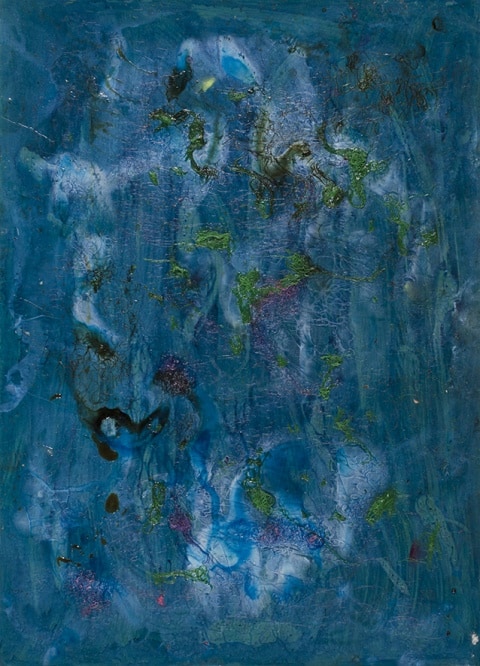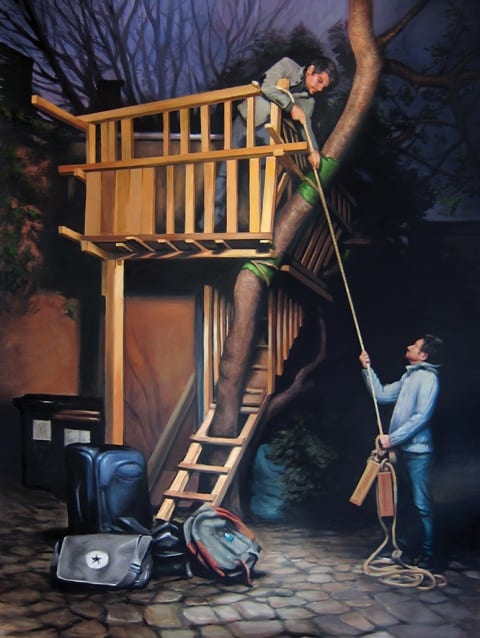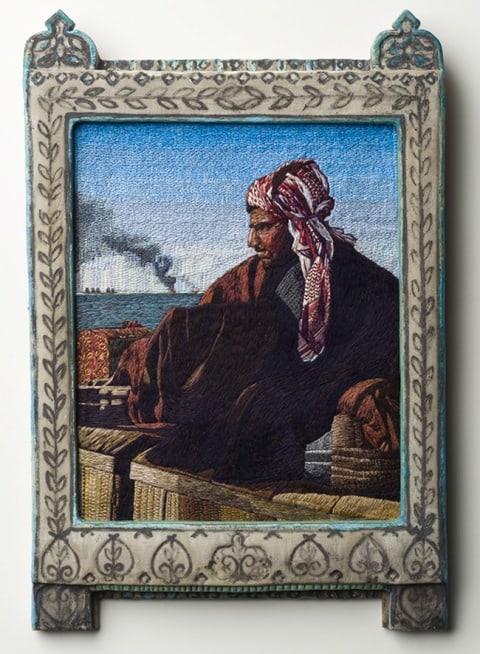Bell-Roberts | Cape Town
When thinking about Jacques Coetzer’s show of recent work, Alt Pop, I kept returning to one work in particular. Paradise Lost is a seemingly simple, altered found object, an artwork consisting of a standard garden hose, but with a plastic snake’s head at the one end. The hose is brand new, crisp viridian and shiny. I find this work to be an apt summary of the show itself, because in a way it embodies many of the concerns running through the rest of the work.There is a wry and cocky humour to naming a garden hose after such a canonical work in Western culture, but while Milton’s remains may be shifting uncomfortably, Coetzer’s gesture is indeed very apt for our time. Throughout the show are references to the everyday objects that populate a middle class lifestyle, from the faux villa-style rows (upon rows) of homes in Cluster Park, to the humorously over-extended shopping trolley in Hypershopper (its extra space required for those endless objects to fill the gaping holes in the lives of any given target market).Not all the works in the exhibition utilise the same strategy as Paradise Lost. There are also a selection of mostly self-contained Pop art pieces with catchy tag lines, such as Forever Young, Hard Cash and Disposable Income, but like the snake in the grass the blithe humour is mixed with sober observations.Thus, returning to Paradise Lost, the work calls to mind the lawns of suburbia, and, with its serpentine addition, also reminds me of the Afrikaans saying ‘n slang in die gras (the equivalent, ‘a snake in the grass’ is obviously also applicable). This association suggests to me a sense of danger lurking in the seemingly idyllic landscape of a middle class backyard. Perhaps Coetzer is implying that beneath the plastic veneer of shop objects, from home improvement stores, or the rows of supermarkets, lies a trap. The lost paradise may be that impossible fulfilment which has been promised by the allure of the lifestyle. More pointedly, however, the paradise may refer to an earlier time, free of the insidious materialism of our current way of life.And indeed, Coetzer will not be the first to have suggested that consumer culture holds a vain and empty promise. Most of Coetzer’s audience will be familiar with popular anti-globalisation texts and arguments. However, his commentary reaches further. To my mind, underlying the entire exhibition is a sense of cynicism that pertains not only to the world outside, but also that inside the gallery. The works seem to doubt their own ability to constructively alter the situation on which they comment.In fact, the hyperreality of the artworld is invoked in Coetzer’s show. Cluster Park’s ornate frame keys us into this first, but there are also oblique references to Jeremy Wafer in Dust to Dust, and Frank Stella, Barnett Newman and other minimalist painters in his Market Segmentation. Even the title of the exhibition, Alt Pop, resonates with the myriad of meaningless appellations and distinctions drifting around the artspeak channels. In this way, Coetzer suggests a profound confluence between the vacuousness of consumer culture and art circles, deferring rather than defining meaning and substance. Of course, he does not distance himself from it so much as self-reflexively mirror it.The garden hose that largely constitutes Coetzer’s Paradise Lost is, as I have said, brand new – it hasn’t lain in the harsh South African sun for countless summer afternoons, cracking under the relentless heat. Its pristine state draws our attention to the expanse of surface, unyielding, glossy and impotent.
{H}



